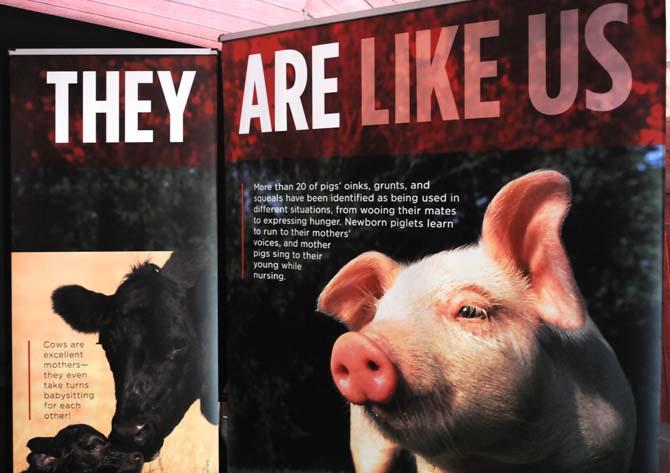We all have a soft spot for our pets, and we shudder and shame those who are guilty of animal abuse. But for some reason, animal testing doesn’t phase the majority of humans.
This may be because we feel distanced from these creatures, tightly packed behind the white walls of sterilized laboratories. Or maybe because we are constantly told there are no alternatives to animal testing and we, as leaders of the animal kingdom, deserve to assert our dominance by testing and torturing these animals for our own benefit.
Those who are still skeptical of testing alternatives usually tune out of the animal rights debate because they think they will be faced with an ultimatum — either we test on animals or we halt all medical progress and humans die.
That is where pro-animal testing arguments fail, because the truth is there is no ultimatum, no matter how much advocates of animal testing want to believe in one.
As much as we justify our feelings toward animal testing because of its scientific benefit, our biased opinions are invalid excuses to abandon our ethics regarding the respect and rights of other species.
Scientists and bystanders can choose to ignore the facts that rightfully condemn animal testing, but ignorance won’t make these facts disappear.
I’m not saying we should switch to human testing and keep our children in cages for the betterment of society, but there are alternatives.
Philosopher Jeremy Bentham put it best when he wrote, “The question is not, can they reason? Nor, can they talk? But, can they suffer?”
Bentham believed the world would eventually progress to a time when humans would protect all breathing animals and not limit certain humanitarian rights to just our species.
His ideas were outrageous for his time but have slowly become more understood and accepted.
If scientists put sufficient funding into finding alternatives to animal testing, we could do it. It’s underestimating science to say animal testing is our only means of medical progression.
Microdosing is a type of drug test that involves giving humans a low dose of a substance, which will allow scientists to see the effect of said substance on a cellular level without affecting the human’s entire body.
Another method is in vitro — in tube — testing. This is an increasingly popular alternative that is even used to fertilize women. In vitro is human cell-based, and therefore more humane than pumping chemicals and drugs into animals just to measure the amount of damage it will cause.
Not only is in vitro more ethical, it also produces more accurate results because the tests are conducted on human cells and not animals. It should be no secret that animal and human genetics differ. Animal testing can sometimes produce similar, but not identical, reactions to humans.
In the late 1950s, a drug called Thalidomide was introduced to pregnant women. After testing the drug on various animals with no consequences, scientists mistook the drug to be safe and distributed it to women for nausea. This ended up causing around 10,000 birth defects and thousands of fetal deaths in women who took Thalidomide.
So while animal testing is not only detrimental to the animals being worked on, it can also cause unexpected problems in humans after what may seem like a clean trial.
Our generation is the most educated and forward-thinking this world has ever seen. The next generation will be even more cultured than we are. In fifty years, animal testing will be thought of as a medieval scientific method.
Let’s stand behind the future of science instead of clinging to its past.
Annette Sommers is an 19-year-old mass communication sophomore from Dublin, Calif.
600 words of Sommers: No. There are more humane alternatives
February 12, 2014
Educational signs are displayed inside a PETA tent Tuesday afternoon near the student union.
More to Discover








